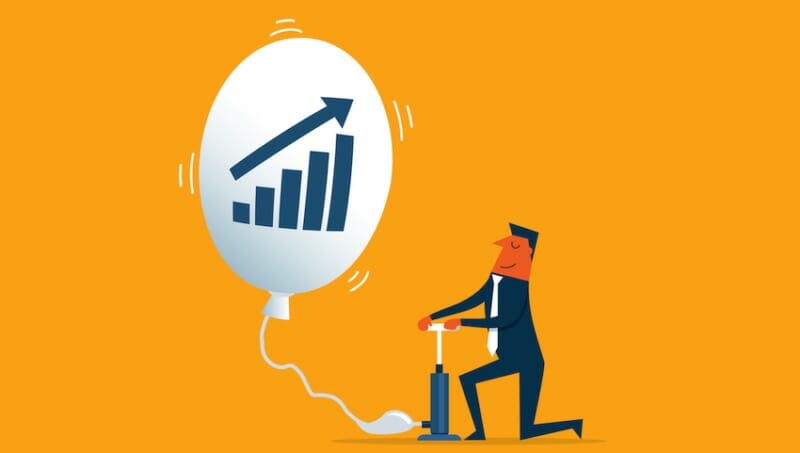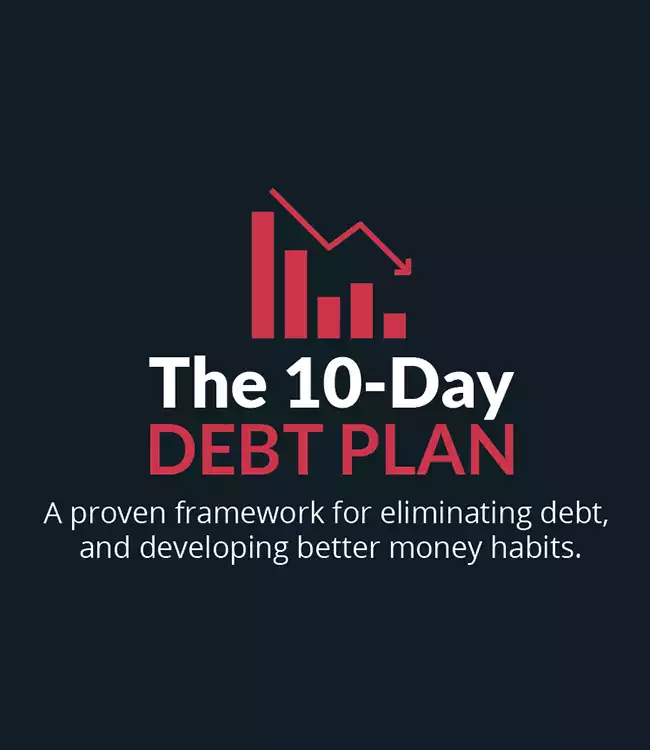If you currently have debt there are ways to make it less expensive. Today we will discuss why you should refinance your debt.
Refinance: The Simple Definition
Just to make sure we’re all on the same page from the start, let’s define what it means to refinance a loan. Refinancing is replacing a previous loan with a new loan – ideally one with a lower interest rate and better terms. (Otherwise, why would you bother to refinance a loan at all?)
When you refinance, your previous loan is paid off, a 2nd (better-for-you) loan is created, and you’ll enjoy refinancing benefits like a reduced monthly payment, lower interest rate or a shorter or longer loan duration.
Why Should I Refinance a Loan?
You should refinance a loan because it will save you money. Nothing more complicated than that. In most cases, refinancing won’t make you money, but it will save you money.
If you have a high-interest rate debt, credit card debt, for instance, you can take out a loan with a lower interest rate, from a company like Credible, to pay it off.
When you refinance, you still owe money to someone, but now at a lower rate of interest. You’re losing less money and paying off the debt faster when you refinance for a better rate. Look carefully at the refinancing terms of the new lender.
Credible's online marketplace connects borrowers with lenders in minutes. Refinance federal, private, and ParentPlus loans. Compare student loan refinancing rates from up to 7 lenders without affecting your credit score for free! Rates range from 5.24% to 12.44% APR
While their interest rate may be lower than what you’re currently paying, there may be fees involved that would eat up those savings. We can’t stress this enough – pay close attention to any fees related to a refinance. Any gains you make in improved refinancing rates can easily be canceled out if you’re side-swiped by fees.
This free course outlines a proven framework that thousands of people have used to eliminate their debt, develop better money habits, and start building a secure financial future.
Inflation: What To Consider When You Refinance

Inflation is simply a general increase in prices and a fall in the purchasing power of money. Your dollar that is worth $1 today will not be worth $1 a year from now. It will be worthless. What you needed $100 to buy this year you will need $102 to buy next year with an inflation rate of 2%.
That sounds bad, but inflation is not always a bad thing. Any debt you have also decreased in value as inflation grows. So your money decreases in value but so does your debt. Inflation makes your debt cheaper.
Automatic cost of living raises are largely a thing of the past. They were raises that matched the rate of inflation. If inflation was 2%, you got a 2% rise in order to preserve the buying power of your salary. You might get more than that, but you could count on at least a cost of living to raise each year.
The average raise for 2023 was 4.4% so just above inflation (3.4% for 2023). If you aren’t getting at least a 2% raise, you are losing money.
Before the 2008 crash, inflation was pretty reliably about 3%. In 2021, inflation was 7.00%, dropping to 6.50% in 2022 and 3.4% in 2023. The Central Bank’s goal is to keep inflation at about 2%.
Having some low-level inflation means the economy is less likely to experience deflation when economic conditions weaken. It’s meant to be a safety valve when things go south. So again, inflation is not always a bad thing.
The Cost of Money
When you take out a loan for a home, a car, or college, the lender gives you an interest rate. That interest rate is the cost to get that money. If you borrow $100 for a year at 4% interest, that $100 cost you $4. If you invest the $100 and you make $108 through the investment, you are ahead by $4 (the bank gets $4, and you net $4).
If you charged $100 for a television on a credit card at 20% interest, that money cost you $20. You didn’t make any money, that “loan” only cost you money. And this is a key concept to grasp when thinking about a refinance – your new, refinanced loan should cost you less money.
A student loan at 2% interest with an inflation rate of 2% works out to cost you nothing as long as your income keeps pace with inflation.
Are You Getting Your Money’s Worth?
If you borrow money, you should do so only if you are going to get a return on that money. That money should be an investment that will eventually make you more money. Taking out a student loan to go to college is a perfect example of this. Although
LMM advocates paying for at least part of your education yourself in order to avoid as much debt as you can and have covered various ways to pay for college without loans.
Going to college is an investment in your future earning ability. You want to make sure the time and money you spent going to college, especially if you went into debt to do it by taking out student loans, is worthwhile.
A person who gets a chemical engineering degree should earn a good salary as a chemical engineer. The return on that investment (their salary) will outpace the cost (the student loan debt). Debt isn’t always a bad thing. The function of debt should be to create more monetary value.
Taking out a loan to get a degree in some obscure subject for which there is little demand is a poor use of debt. Underwater basket weaving is the cliched example.
If you could get a job in that field at all, it is unlikely to pay enough to recoup the student loan costs you incurred. And in this instance, refinancing isn’t going to help you much – a bad investment is a bad investment.
Wants vs. Needs

Thomas Buys a Car was a notorious moment in LMM history. He financed a purchase that was only going to cost him money. He admitted then as he admits now, he wanted that car and was willing to finance it.
If you are otherwise in good shape financially, you are allowed to make those kinds of decisions. It’s not much of a life if the money you work hard for and are responsible for isn’t allowed to purchase pleasure from time to time.
If you’re struggling with a decision like this, use an interest calculator to find out how much interest you’re going to pay over the term of the loan. That should help you decide. Or you can spend weeks making charts on whiteboards, but this interest calculator is simpler and much more efficient.
Debt Refinancing Options
There are many lenders who will refinance debt for you from traditional banks to crowdsourced lenders like
Federal student loans, for example, come with certain protections that you will lose when you refinance with a private lender.
Some lenders who specialize in student loan refinancing like Credible offer some protections but understand what they are and what you’re giving up.
Student Loan Hero and Nerd Wallet have grids with tons of great information on refinancing loans. As you can see, the better your credit score, the better terms you will get.

Fixed vs. Variable: Rates & Refinance
When you decide to refinance you will choose between a fixed rate or variable rate loan. Fixed-rate loans generally have a higher interest rate than variable rate loans – and as we said earlier, you want to pay attention to all the costs you might incur when refinancing a loan.
The rate of interest does not change over the entire life of the loan. If you pay 5% interest in the first month, you pay 5% in the final month.
The rate of interest for a variable rate loan, well, it varies. These loans generally have an initial rate of interest that is lower than a fixed rate loan. The interest you pay is determined by interest rate changes.
Taking out a variable rate loan is a bit of a gamble, but it can pay off and save you money. Of course, if you’re looking at refinancing your home, it’s extremely important to carefully consider all your options.
Refinancing mortgage loans can be a whole different beast when it comes to variable rate offers. Be sure to do extra homework for a mortgage refinance, and you won’t be sorry.
If the difference is 1% or greater between fixed and variable offers and you can pay the loan off quickly, it makes sense to choose the variable rate loan. Even if the rate does change before you’ve paid the loan off entirely, you’ve made so much progress that you shouldn’t have much of the principle remaining.
Incidentally, changing between variable and fixed rate loans is a common reason why people refinance debt in the first place. For example, if you’ve been promoted at work and have a new additional income you can direct towards paying off a loan faster, you’ll want to consider refinancing to take advantage of better rates and terms.
Consider Your Options Before You Refinance
Bottom line – don’t be seduced by the idea of refinancing debt. It’s usually a good thing when you refinance a loan but make sure you understand the terms offered by the new lender. Be aware of any refinancing fees you will have to pay and any protections you may lose when you leave your current lender.
Show Notes
B.O.R.I.S. The Crusher Oatmeal Imperial Stout: A stout with a deep roasted, full-bodied flavor.
Rich Dad Poor Dad: A personal finance classic.
Get your rate from every platform, for free, and it doesn't affect your credit. Rates as low as 3.99% APR with autopay.




